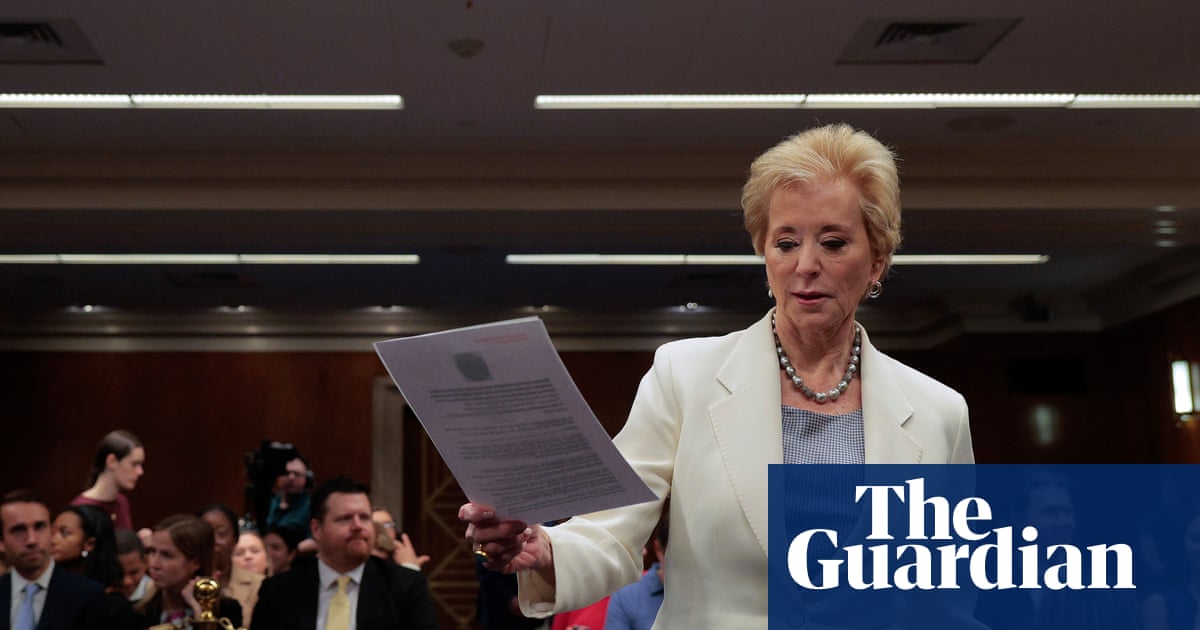Linda McMahon, the education secretary, said on Wednesday she was unsure if teaching students about two of the most notorious racist episodes in US history would fall foul of the Trump administration’s onslaught against diversity, equity and inclusion (DEI).
Testifying before the House of Representatives’ education and workforce subcommittee, McMahon appeared uncertain of her facts when confronted by Summer Lee, a Democratic representative from Pennsylvania. Lee asked her about the 1921Tulsa race massacreandRuby Bridges, a civil rights workers who as a six-year-old, braved a screaming mob to become the first Black child to attend a previously all-white school.
The exchange occurred after Lee asked her if teaching an African American history course would breach the administration’s anti-DEI policies.
“I do not think that African studies or Middle East studies or Chinese studies are part of DEI if they are taught as part of the total history package,” she said. “So that if you’re giving the facts on both sides, of course they’re not DEI.”
Lee said she was unsure what both sides of a Black history course would be and raised the questions about Tulsa and Bridges, prompting McMahon to respond that she would “look into them”.
That in turn led to Lee asking: “Do you know what the Tulsa race massacre is?” McMahon replied: “I’d like to look into it more.”
The Tulsa episode is widely seen as the single worst outbreak of racial violence in American history, when an attack on the city’s Black community led to the destruction of more than 1,000 homes and business, and the deaths of between 50 and 300 people, according to various estimates. The attack happened during a period of racial tensions marked by the growth of the Ku Klux Klan.
Lee then asked if it would be illegal to teach Bridges’ book, Through My Eyes, which documents her experience of attending a formerly segregated school in New Orleans in 1960, under the escort of federal marshals. The episode was later depicted in a famous Norman Rockwell painting, entitledThe Problem We All Live With.
McMahon said she had not read Bridges’ book, leading Lee to ask: “Have you learned about Ruby Bridges?”
McMahon – a billionaire former president of World Wrestling Entertainment – tried to respond: “If you have any specific examples you would like to … ”
Lee cut her off, saying: “That was an incredibly specific example.”
McMahon was equally vague when asked if schools could be penalized for accurately teaching that Joe Biden won the 2020 election.
She said that social studies “should all be taught accurately” and that “we should hear all sides” when Lee raised the question in the context of recent changes in Oklahoma, where the state’s schools superintendent recently ushered in the introduction of election conspiracy into the curriculum. These include asking students to “identify discrepancies” in the 2020 poll.
McMahon alsoclashed with the Democratic representative Mark Takanowhen he challenged her about “viewpoint diversity” at Harvard, a principle the administration says it wants to enforce to counteract supposed liberal bias.
“Does refusing to hire a Holocaust denier as a member of Harvard’s history department faculty count as an ideological limit test?” Takano asked.
Replying, McMahon said: “I believe that there should be diversity of viewpoints relative to teachings and opinions on campuses.”
